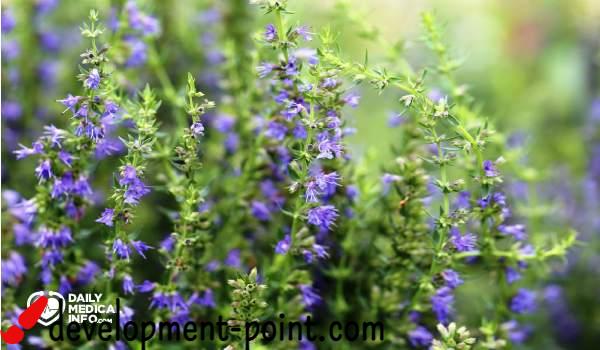Treatment of high milk hormone with herbs and nutritional supplements
Many women and men suffer from high levels of the milk hormone known as prolactin in the body, which causes some disturbing symptoms that may reach the point of infertility, so in this article we offer you ways to treat high milk hormone with herbs and vitamins, as well as healthy eating.
Treatment of high milk hormone with herbs
Among the types of treatment for high milk hormone are natural herbs that you can use as an alternative medicine treatment to lower your prolactin levels, including the following:
Nigella sativa seeds
Nigella sativa seeds, or what is known as fennel flower or kalonji, contain effective therapeutic properties in reducing high levels of the milk hormone due to its secretion of the estrogen hormone, as it can be an alternative to hormone therapy, and it is easy to include nigella seeds in the diet, as they can be added to salads or bread or other dishes.
black cohosh
It is a plant that belongs to the Nigella sativa family of plants, and contains chemicals similar to estrogen in its properties, which when taken in large doses help in treating high milk hormone and treating menopausal symptoms and premenstrual symptoms in women, but you must consult a doctor first before taking it.
marjoram
Marjoram is known for its effectiveness in regulating the secretion of estrogen in the body and thus helps in lowering milk hormone levels as well as regulating the menstrual cycle and improving blood sugar levels.
Ashwagandha
Ashwagandha, also known as Withania somnifera, is one of the herbs that can treat high levels of the milk hormone in the body. It also increases male fertility and sexual desire for both men and women. Therefore, it is recommended to include it in the daily system to improve the levels of the milk hormone.
It is recommended to use 5 grams (0.18 ounces) of ashwagandha powder daily as a dietary supplement, but before you start taking any supplement, talk to your doctor first, as you may experience nausea, stomach problems, or headaches with this herb.
Chasteberry (Vitex herb)
Vitex, also known as chasteberry or chasteberry, is a peppery-tasting herb that is known to increase milk production in nursing mothers, but according to one study, which substances help raise prolactin levels depends on the dose.
Low doses of Vitex herb increase prolactin, while high doses reduce prolactin levels in some individuals. This herb can be taken in the form of tea or 20 to 40 mg of this herb extract can be mixed with water on a daily basis.
Although there is no evidence of any possible drug interactions when using this herb, it can have effects on dopamine release, and thus it can interact with medications used to treat Parkinson’s disease such as:
- metoclopramide;
- bromocriptine;
Notice; It is not recommended to use this herb during pregnancy and breastfeeding, because there are not yet sufficient studies on its safety during this period, and consult a doctor before taking this herb to determine whether it is suitable for your health condition or not.
Vitamins that reduce the hormone milk
In addition to treating high milk hormone with herbs, taking vitamins and nutritional supplements can help lower milk hormone as well. These supplements include the following:
zinc
Zinc supplementation may also help lower prolactin levels. Try starting with 25 mg per day and increasing the amount as needed to 40 mg per day, but you should recheck your prolactin levels to see if you need to increase the dose.
Ask your doctor about appropriate doses of supplements such as zinc, and side effects of zinc can include the following: headache, indigestion, nausea, diarrhea, and vomiting, and if you take more than 40 milligrams per day for a long time, this may cause copper deficiency.
Vitamin B6
Vitamin B6 can treat high milk hormone in the body, so you can take vitamin B6 supplements to treat your high milk hormone, but you have to go back to your doctor first to find out the appropriate doses of this vitamin for your health condition.
Vitamin E
Adding 300mg of vitamin E to your daily supplement may reduce your prolactin levels especially if your levels are high. It may prevent your pituitary gland from releasing too much prolactin, but talk to your doctor before starting vitamin E if you have a health condition such as kidney disease. or dialysis.
There are also some side effects that you may experience if you take high doses, including: stomach problems, fatigue, weakness, skin rash, headache, blurred vision, increased creatine in the urine, and impaired function of the gonads (testicles).
Food that lowers the milk hormone
In addition to treating hyperlactation with herbs and nutritional supplements, it is believed that a complete diet rich in fruits and vegetables, especially dark leafy greens, improves the health of anyone, especially patients with hyperlactation, and this diet should also include:
- cold water fish.
- Whole grains.
- Legumes, especially soybeans.
- Nuts and seeds.
In addition, there are some foods that are particularly useful in lowering levels of the milk hormone (prolactin), as many studies have indicated a link between vitamin B6 deficiency and hyperprolactinemia, so you should start thinking about eating more foods that contain vitamin B6, such as:
- potatoes.
- the banana.
- chicken.
- spinach.
- avocado.
- peach.
- Nut.
- vegetable juice.
- Whole grain flour.
- Wheat.
- beef liver.
- Sunflower seeds.
- Wheat Bran.
- carrots.
- brown rice.
- soybean.
- Cheese.
- lentils
- shrimp.
- Salmon.
- Tuna.
- turkey.
Foods rich in zinc, which is helpful in reducing lactobacillus, include:
- oysters.
- Beef.
- Turkey.
- Beans.
Before making any major changes in your diet, you should consult your doctor first to ensure that these changes are compatible with your health condition and that you do not have any complications or health risks.
Frequently Asked Questions
Does yogurt raise the milk hormone?
One study indicated that dairy products, in turn, can raise the milk hormone in the body.
Does folic acid reduce the milk hormone?
Studies have indicated that folic acid is more associated with the reproductive hormone, ovulation, and progesterone levels.
Does drinking milk raise the milk hormone?
Milk can help raise the milk hormone because it contains saturated fatty acids.
Do bananas raise the milk hormone?
yes. Bananas are one of the foods that contain vitamin B6, which in turn reduces the milk hormone.
Does cress raise the milk hormone?
Yes, cress seeds raise the milk hormone for nursing mothers because it contains high levels of protein and iron.
Do dates raise the milk hormone?
yes. Eating dates can raise the levels of the milk hormone (prolactin).
In the end, after knowing the ways to treat high milk hormone with herbs, nutritional supplements, and healthy foods, you should not follow any prescriptions or systems or take any of the previous supplements before referring to your doctor first, and we wish you a speedy recovery.

